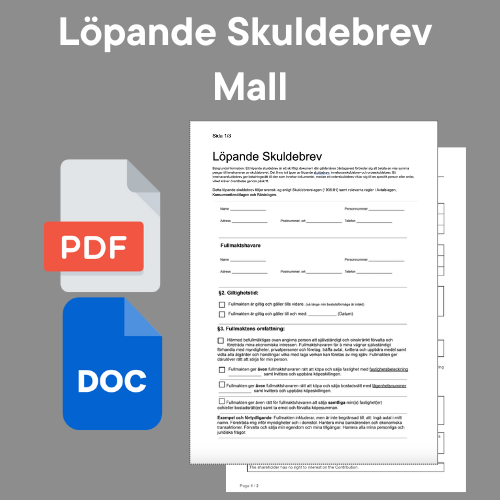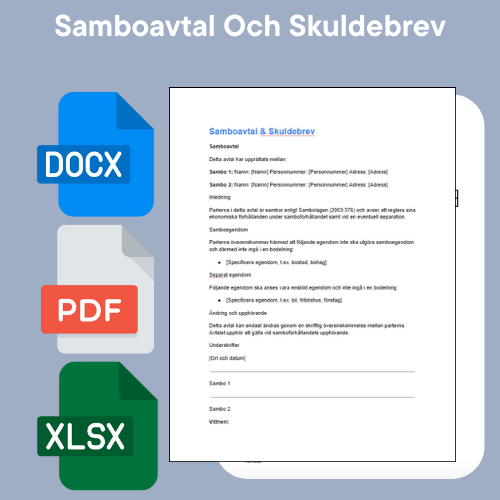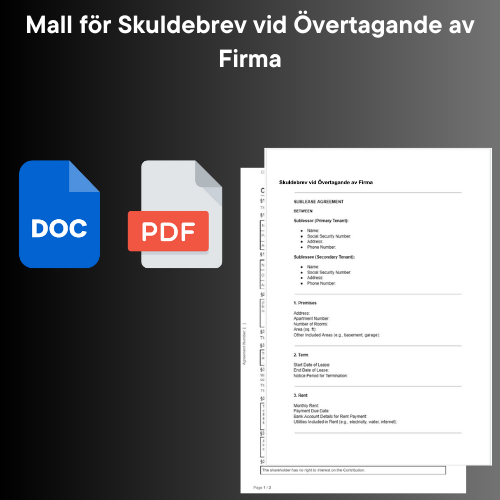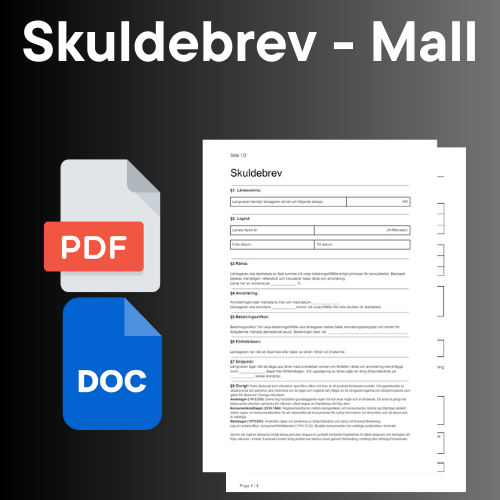FAQ - Promissory note
Share
Frequently Asked Questions and Answers about promissory notes
Table of Contents
- What is a Promissory Note?
- What Types of Promissory Notes Are There?
- What is the Difference between Current and Simple Promissory Notes?
- What are the Important Terms to Include in Promissory Notes?
- Does a promissory note need to be renewed?
- How should the promissory note be handled when the debt is paid?
- What happens if I want interest on the debt?
- How Can You Ensure that the Promissory Note is Legally Correct?
- Common Misconceptions or Mistakes about Promissory Notes
What is a promissory note?
A promissory note is a written commitment that acknowledges a monetary debt or a promise to pay a certain amount of money. A simple promissory note is issued to a certain person, while a running promissory note can be transferred to others.
What Types of Promissory Notes Are There?
There are two main types of promissory notes:
- Simple promissory note : Issued to a specific person and is less flexible in terms of assignment.
- Current promissory notes : Can be freely transferred to others. Divided into bearer promissory notes and order promissory notes.
What is the Difference between Current and Simple Promissory Notes?
A current promissory note can be transferred without major obstacles and the holder can demand payment. A simple promissory note can also be transferred but is tied to a specific person and requires proof of transfer.
What are the Important Terms to Include in Promissory Notes?
In addition to the amount and interest, the promissory note should clarify the following:
- Repayment period and plan for amortization.
- Interest for delays in the event of non-payment.
- Possible consequences in case of non-payment.
Does a promissory note need to be renewed?
A promissory note between private individuals has a prescription period of ten years. It is important to update the promissory note regularly or implement statute of limitations breaks to keep the agreement valid.
How should the promissory note be handled when the debt is paid?
It is important to get the promissory note back or to ensure that the repayment is documented in writing. This is to avoid demands for additional payment in the future.
What happens if I want interest on the debt?
If you as a lender want to charge interest, this must be clearly stated in the agreement. This includes any late payment interest if payment is not made on time.
How Can You Ensure that the Promissory Note is Legally Correct?
Hiring a lawyer or using a quality-assured template can help include relevant terms and conditions. Witnessing is also important to avoid future disputes.
Common Misconceptions or Mistakes about Promissory Notes
- Unclear Documentation : Many promissory notes lack clear terms or are too general in their wording, which can lead to ambiguities regarding interest, amortization plan and repayment period. This can create conflicts about the interpretation of the terms.
- Misunderstanding about Transfer : Some believe that simple promissory notes can be transferred as easily as current promissory notes. In fact, the assignment of simple promissory notes requires denunciation, which means that the debtor must be informed.
- Ignore Legal Regulations : Some promissory notes may not comply with applicable laws and regulations, such as requirements for correct interest calculation under the Interest Act or the Consumer Credit Act, which may invalidate the agreement or have legal consequences.
- No Witness : If a promissory note is not witnessed, it can be difficult to prove that the document is genuine in case of any disputes.
- Incorrect or Missing Signatures : If all parties do not sign correctly or if the signatures are completely missing, the promissory note may lose its validity or difficulties may arise in collection.
- Confusion of Promissory Note Types : Misunderstanding the different types of promissory notes and their specific functions can lead to the wrong type being used for a particular purpose, which can make it difficult to pay or collect the debt.
- The statute of limitations is ignored : Debts have a statute of limitations, which means that after a certain time the right to demand payment ceases. If you fail to cancel the prescription, you lose the opportunity to claim a refund.




